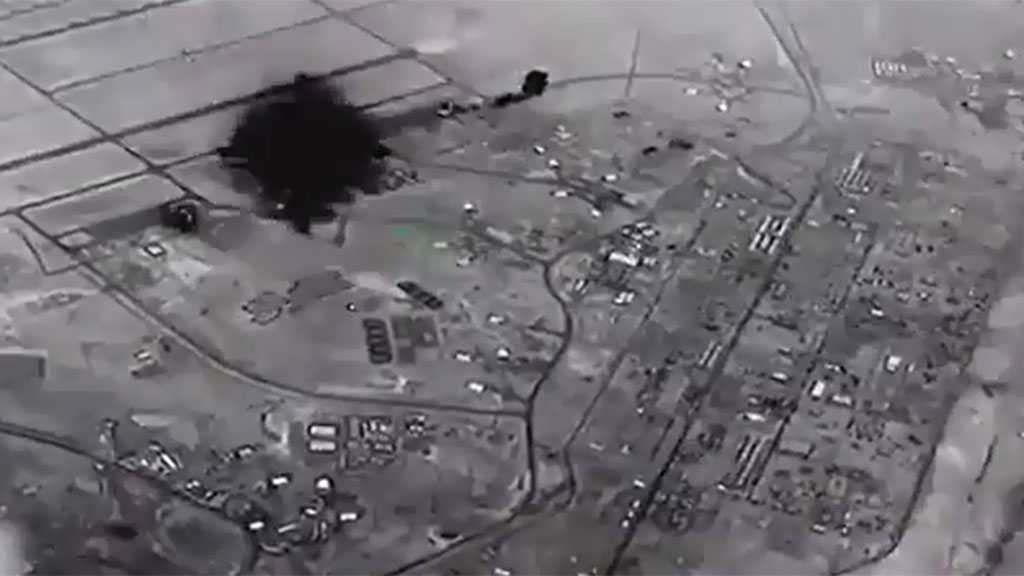More than one year after being targeted, the US Central Command [CENTCOM] declassified the aerial surveillance footage of Ain al-Assad Air Base in Iraq during Iran’s 2020 ballistic missile attacks on that facility as part of the retaliation for the US assassination of top Iranian commander Lt. General Qassem Soleimani.
The never-before-seen footage, shot by a drone orbiting overhead at the time, shows six ballistic missiles hitting the base.
The CENTCOM, which is the top command overseeing the US military activities in the Middle East, provided the video first to CBS News’ “60 Minutes” for a segment that aired this past weekend.
The video starts by identifying five ramps at Ain al-Assad – named Bravo, Charlie, Foxtrot, Valley, and Voodoo – and the number of aircraft positioned at the time of the attack.
The on-screen notes also indicate that there are usually 10 aircraft on the flight-line and that 51 fixed-wing aircraft and helicopters had evacuated the base ahead of the strikes.
The video then moves on to show two missiles hitting “expeditionary air maintenance facilities,” a formal term for “tension-membrane” clamshell-type hangars, on the Bravo ramp. A third missile slams into the Charlie ramp, damaging additional clamshell hangars, as well as offices, living spaces, dining facilities, and latrines.
The fourth missile strikes the Voodoo ramp, hitting more clamshell hangars, as well as a fuel bladder. The last two missiles seen in the footage strike the Charlie and Valley ramps, hitting a rescue operations center, as well as maintenance facilities, a gym, and a dining hall.
It’s not clear what type of drone filmed the video in question, but it is known that a number of US Army MQ-1C Gray Eagles were airborne at the time and that some were kept on station due to fears that a complex ground attack could follow the missile barrage, according to The Drive website.
However, the strikes damaged fiber optic lines connecting ground control stations at Ain al-Assad to satellite terminals, cutting them off from the unmanned aircraft overhead. This may also explain, in part, why only six of the missile impacts are seen in the footage.
US Army Major Alan Johnson, who was at the base during the incident, told “60 Minutes” that intelligence had indicated Iran was preparing to fire as many as 27 missiles at Ain al-Assad.
However, then-US War Secretary Mark Esper had said following the January 2020 attack that 11 Qiam 1s had hit Ain al-Assad, in total.
The CBS News’ program also reported that a total of 16 missiles were ultimately launched at the base, with five failing to function as intended. Approximately 110 US service members were later diagnosed with traumatic brain injuries, but there were no fatalities.
Iranian strategic missile units launched the precision attack, branded ‘Operation Martyr Soleimani’, against US forces at the American-operated section of the Ain al-Assad air base in Iraq in the early morning hours of January 8, 2020.













No comments:
Post a Comment